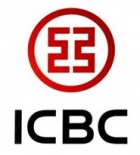Smaller Japanese firms targeted in new effort
Tokyo-based Forval Corporation last week signed a new agreement with the Ministry of Planning and Investment’s Foreign Investment Agency (FIA) to help Vietnamese cities and provinces attract investments from Japan’s small- and medium-sized enterprises (SMEs).
 Hideo Okubo, chairman and CEO of Forval, talks with VIR’s Ngoc Linh about the effort.
Hideo Okubo, chairman and CEO of Forval, talks with VIR’s Ngoc Linh about the effort.
Last year, Forval Corporation signed a memorandum of understanding with FIA for boosting investments from Japan’s SMEs to Vietnam. So what are the differences in the new action plan?
This action plan is a step following the memorandum of understanding we signed last year. We will conduct the plan in three steps. Firstly, Forval Corporation will study cities and provinces, including industrial parks (IPs), that are appropriate to requirements for investments by Japan’s SMEs. In addition, we also study the demand of Japan’s multinational companies operating in Vietnam to learn which supporting industries they would like to be developed in this country to support their investments. Given the study’s results, we will start investment promotion programmes in Japan.
The second step is to select cities and provinces and fill up them with investment projects by Japanese SMEs. These successful locations will be a good example for the development of others nationwide in the future. And in the third step, Forval and FIA will exchange staff, and FIA will send staff to work at Forval to learn the demand of Japanese investors. This will facilitate the effectiveness of our investment promotion programmes. In addition, we will make a map of IPs and supporting industries in Vietnam, in which big Japanese companies can find out where supply chains are in Vietnam to set up their manufacturing facilities.
When will the studies be started?
In fact, we initially studied some cities and provinces, including their local IPs in Vietnam, from January 2011 to March 2012. You know, Vietnam now has 200 IPs nationwide. But to attract investments from Japan’s SMEs, IPs must comprise three factors. They must have staff who can speak Japanese to communicate with Japanese investors, they must offer available workshops to Japanese investors and they must have one-stop-shop model to handle investment procedures.
Regarding the study on the demand of Japan’s multinational companies for supporting industries in Vietnam, we proposed the Japan International Cooperation Agency be involved. We are now waiting for an official response from this agency.
Could you highlight some findings of your studies?
In the studies, we intended to find out if IP developers wanted to receive investments from Japanese SMEs. We visited and interviewed developers at five IPs in the north and five in the south. We found that some IPs could meet all requirements, including Dai An in northern Hai Duong province, Nomura and VSIP Haiphong in northern Haiphong port city, Hoa Khan in central Danang city, Nhon Trach 3 in southern Dong Nai province, Tan Thuan in Ho Chi Minh City, VSIP in southern Binh Duong province, Amata and Long Duc in southern Dong Nai province. Given this result, we will cooperate with FIA to promote investments in supporting industries at those IPs. In a short time, we will study the demand of Japan’s multinational companies for developing supply chain in Vietnam. At that time, we will have a more comprehensive picture.
Have you selected any of those IPs to develop as a successful model?
We are still considering. Initially, we selected Dai An in Hai Duong and Nhon Trach 3 in Dong Nai. We are also thinking about Phu My 3 in southern Ba Ria-Vung Tau province, where the Vietnamese government specially would like to develop supporting industries.
In fact, Hai Duong, Dong Nai and Ba Ria-Vung Tau are good locations for developing supporting industries. In the future, we will expand our studies and support to other IPs in Hanoi, Hung Yen, Vinh Phuc, Bac Ninh, Haiphong and Binh Duong. This is a part of the action plan.
A recent Japan External Trade Organisation survey found that the rapid wage hike was the biggest concern of Japanese investors in Vietnam, especially for SMEs. Will this affect the investments of Japanese SMEs in Vietnam in the future?
Yes, the rising wage is one of the biggest concerns for Japanese investors in Vietnam. This will be a burden for SMEs because their production costs will rise. But, I think Vietnam remains a good destination for Japanese investors if the Vietnamese government can control inflation.
http://www.vir.com.vn
- The 3rd ASEAN-EU Business Summit opens in Hanoi (08/03/2013)
- Japan’s Terumo to build factory in Dong Nai (01/02/2013)
- Inflation restraint and economic growth - dual objectives (01/02/2013)
- Vietnam, UK sign MoU on PPP cooperation (25/01/2013)
- Tax sector budgets for success (24/01/2013)






